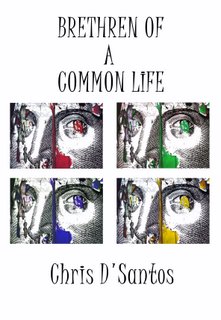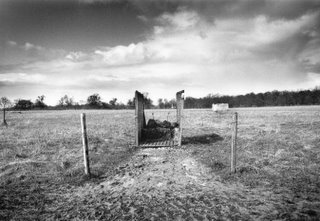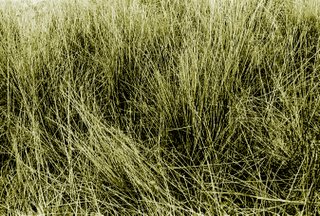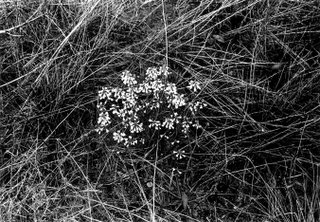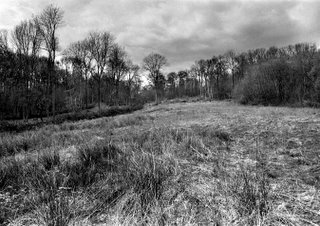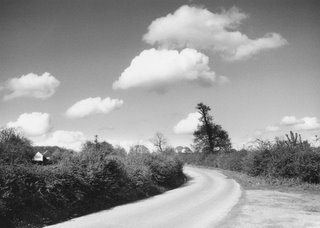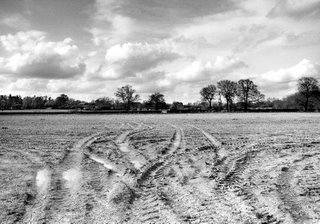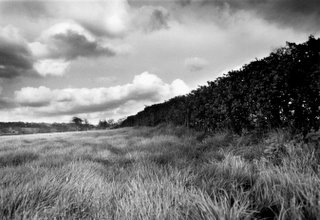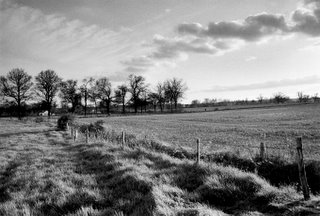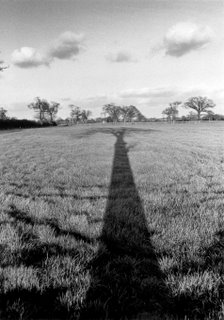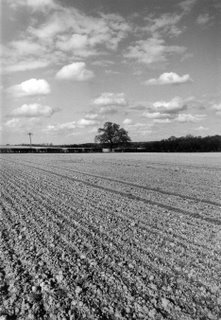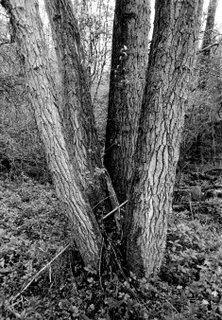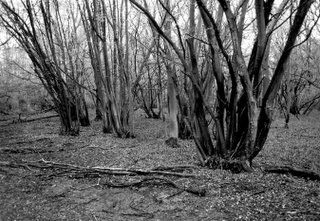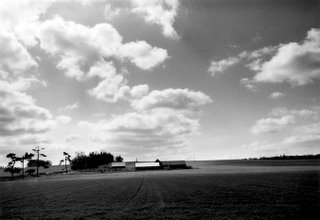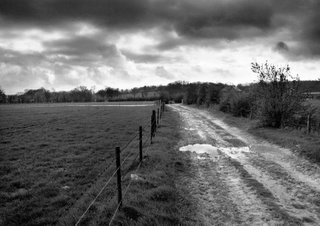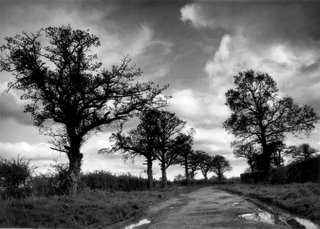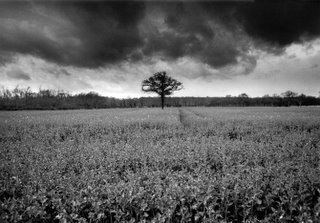For the past few years I have been taking photographs of contemporary locations in London associated with William Shakespeare. The idea is to try and bring some sense of a contemporary visual allegory to the known facts about Shakespeare's presence and career whilst in the London environs - pre-dominantly the City of London and Bankside in Southwark.
The beauty of modern London from an historical perspective is that the layout fundamentally is the same as it was during Shakespeare's time. It does take a leap of faith - of sorts - to revisualise the timbered Elizabethan city's history when confronted by the modern buildings which have shot up against the sky line but because the main street pattern was preserved , more by default than artifice, after the celebrated Great Fire of 1666, an empathy can be achieved.
While working in Southwark, some years ago, I walked, periodically, along the south side of the Thames embankment towards Southwark Bridge and came across the Rose exhibition in Park Street, nearby to the Tate Modern. The Rose Theatre was the first to be built on Bankside in 1587. Its impresario was Philip Hensloe - played in Shakespear in Love by Geoffrey Rush.The foundations of the Rose Theatre had been discovered in 1989 while workmen were preparing foundations for a new office block and consequently a battle ensued to try and preserve the site - and keep the new building. So the Rose foundations were eventually preserved and the building now hovers over the exhibition area via some form of architectural gymnastics. My first and only visit to the Rose catapulted my thoughts back to the late sixteenth century. Initially I thought what a great idea for a ten minute travel video…however the more I found out about the Elizabethan Theatre the more I realised that far from being the beginning of an idea…this was the end of a much bigger and more complex story.
The point of these ensuing, and future, images, is not to authenticate or disprove Shakespeare's status as a playwright but to allow something of the people and the time to breathe through modern London. The golden theatrical period in Elizabethan times was very short - around fifty years. But, in that time the English language reached a level of sophistication and maturity that would have a lasting effect in the centuries that followed. In many ways most of the phrases and idioms that we utter from this period have become cliches without recourse to or recognition from whence they originated.
My research for this undertaking has covered many books and many points of view. Illustrations and images in these books reference the past without , generally , acknowledging the City of now and consequently denying an opportunity to appreciate an historic working relic that is today an important part of the financial world.
Indeed, commerce is and always has been London's beating heart and the Elizabethan stage was not a commodity for the sake of art. The strength and glory of Elizabethan drama was derived through pleasing the audience for without an audience there could not have been a Shakespeare.
Because the Elizebethan period is so well documented it is also a labyrinthe of detail and complexity - much as the age itself must have been and this is in no small way a result of the printing press and the documentation process itself.
History books seem to present Shakespeare as a one off, as the only playwright in his time. There are references to Marlowe and Jonson but Shakespeare is painted as a unique individual - which is true but this only serves to create a mystique about our perception of his greatness which in turn merely invites alternative theories as to the true holders of the feathered quill. And, the market-place is a fuel for conspiracy.
The Elizabethan theatre was a thriving and competitive venture. There were many writers and many companies of actors. There were vested political interests and there were paradoxes within those interests. There were writer rivalries, writer jealousies and writer friendships. Writers wrote together, writers wrote in isolation, writers drank together and pitted their pickled brains against each other. This was a media industry. They were a network of writers collaborating off stage as much as on whether through transmitted ideas or osmosis. There were great playwrights before Shakespeare and there have been great writers since. But Shakespeare popularized the dramatic form through inventiveness and language. If you subscribe to the notion that the pen is mightier than the sword then Shakespeare miraculously brought the sword and the word together. In the 'quick forge and working house of thought' he brought psychology into the minds of his characters. Thus, the watching crowd were able to empathize with three dimensional heroes and villains. Shakespeare was a crowd pleaser and a businessman - as were the players..
